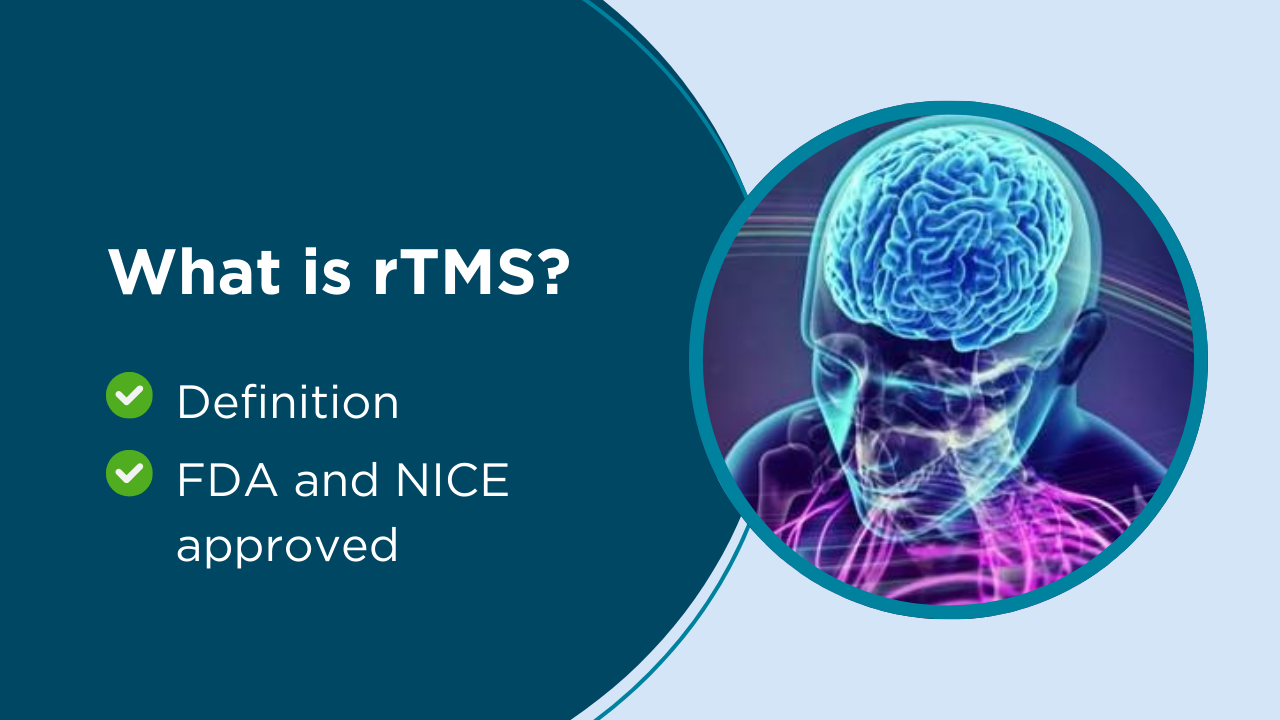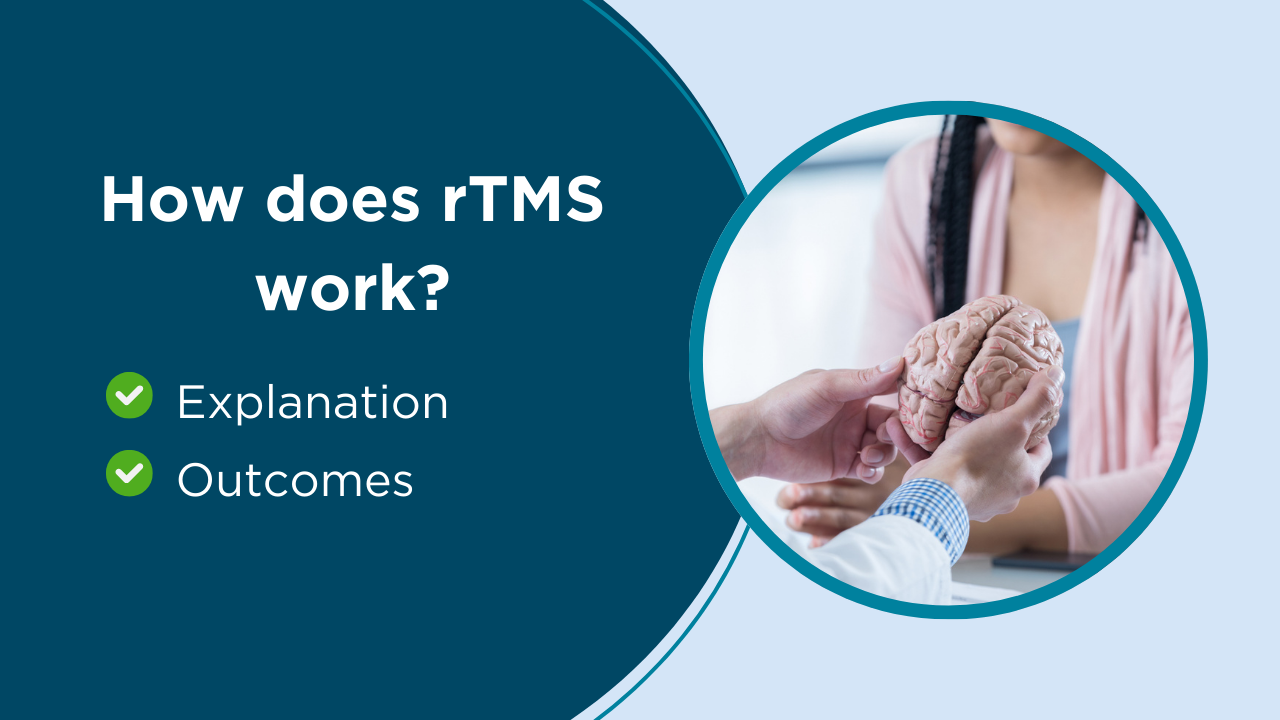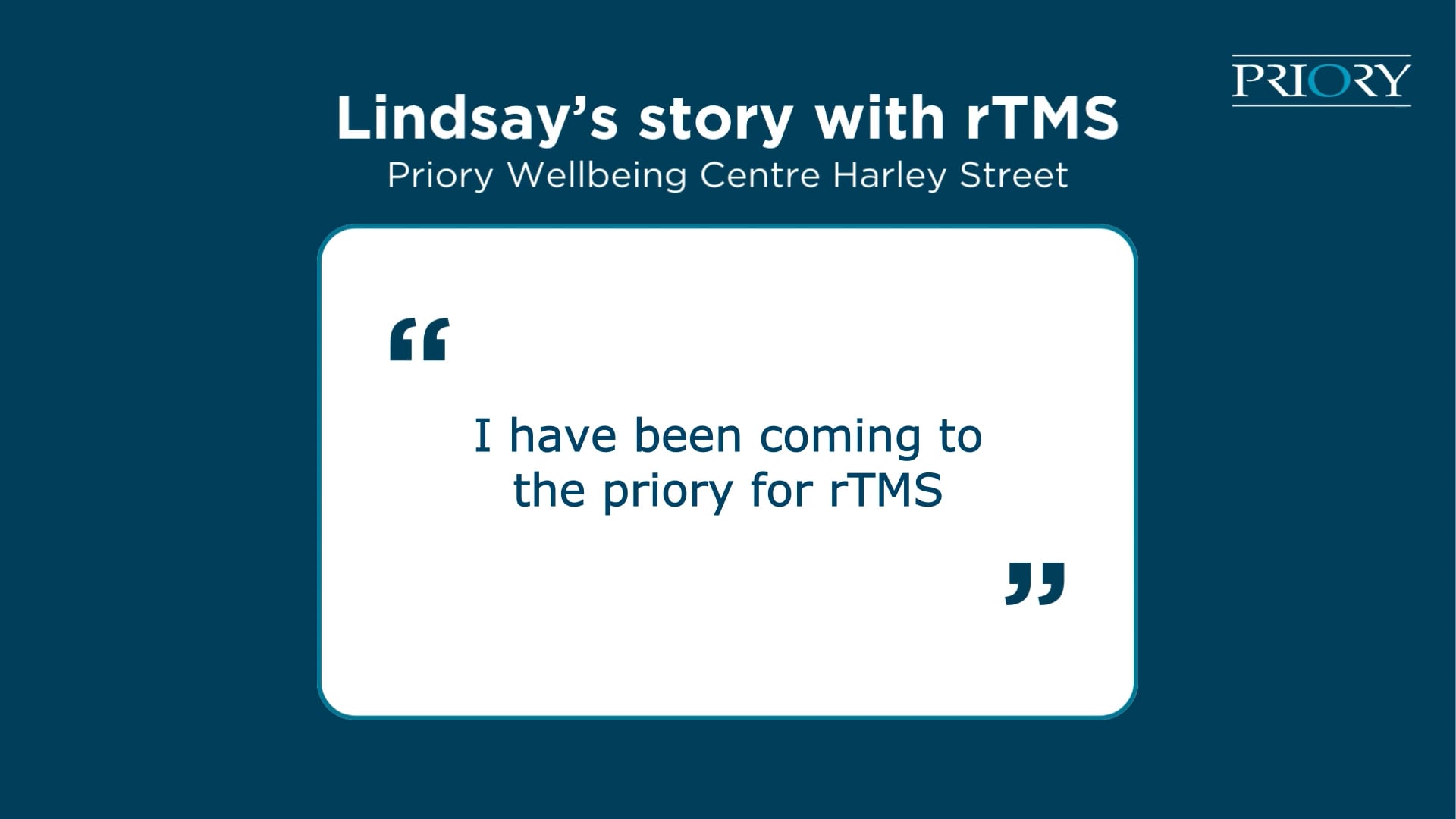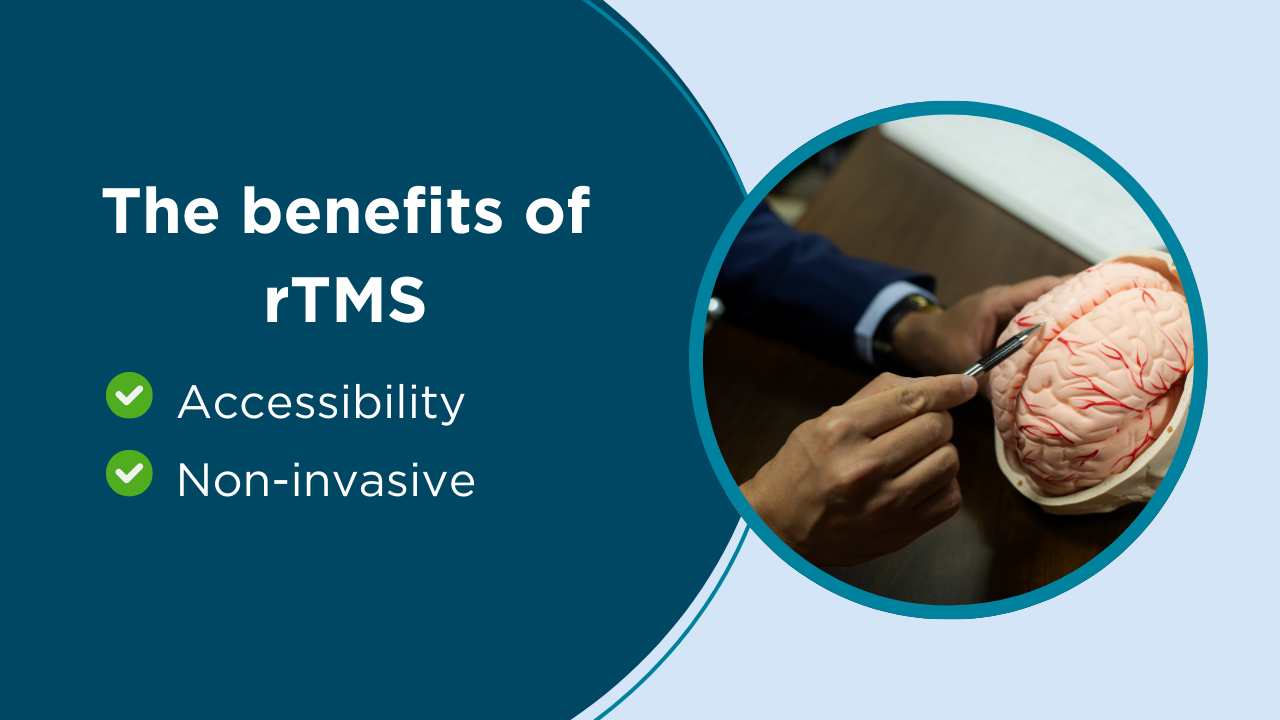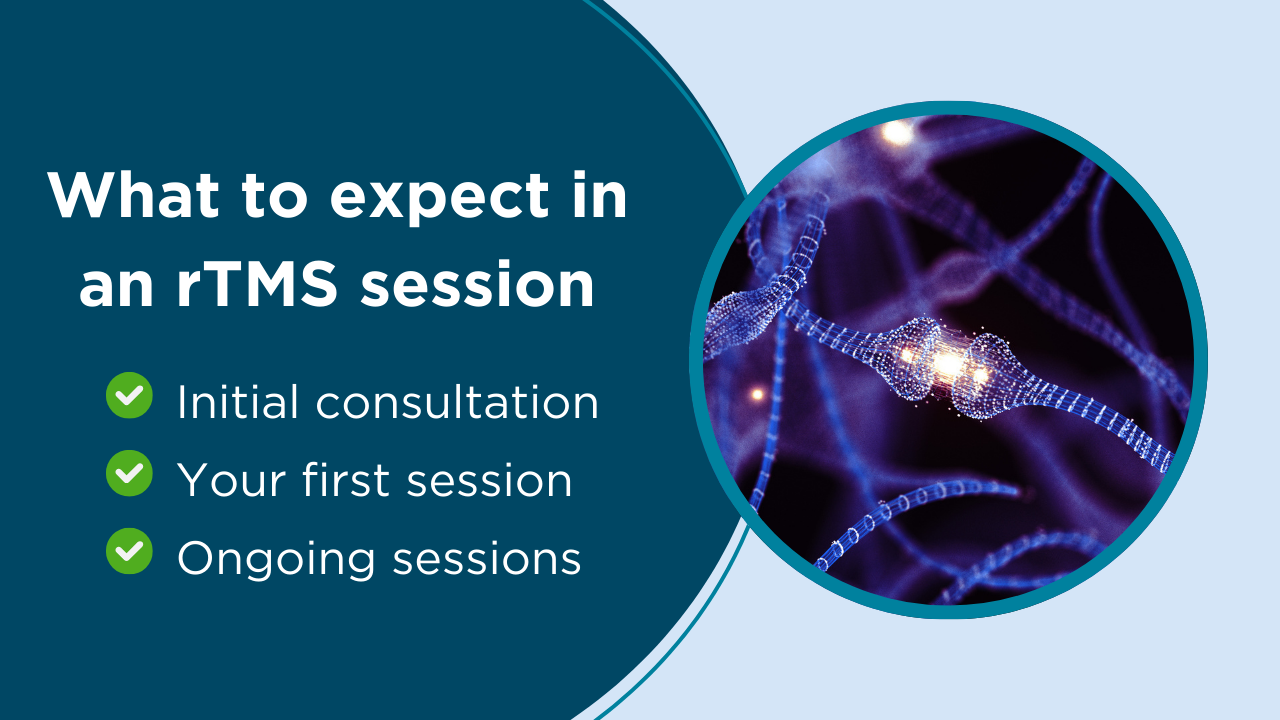rTMS has been shown to be a safe treatment option for depression and OCD, offering a welcome alternative to more invasive procedures. Unlike some medical interventions, you don’t need to be sedated or receive anaesthetic during an rTMS session, and you’ll remain fully conscious throughout. rTMS is also safe during pregnancy and while breastfeeding, providing a useful option for people who don’t want to take antidepressant medications while they’re pregnant or in the postpartum period.
While rTMS is tolerated well by most people, there are some conditions that might mean someone can’t receive rTMS, or would benefit from additional monitoring if they were to go down this route. These conditions include:
- Epilepsy
- Mania or schizoaffective disorders
- Substance use disorders
- Cochlear implants, pacemakers, or metalwork in the head following surgery
For more information on these potential exclusions, please visit our rTMS FAQs section.
In terms of rTMS side effects, these tend to be mild and brief, and many people don’t experience any side effects at all. Some of the most common side effects include a mild headache, local skin warming and mild scalp discomfort.
Importantly, you’ll be able to resume your usual activities immediately after an rTMS session, including driving and returning to work, without any impairment. These factors collectively contribute to the appeal and accessibility of rTMS as a safe and effective treatment option.




